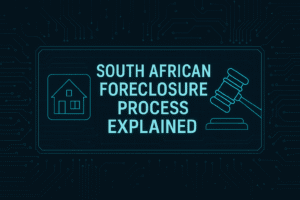Debts impact on father figures
In many families, the father is responsible for providing for the family and protecting his family from harm. But with the current financial pressures and increase in the cost of living, most families will find themselves under immense financial pressure and having trouble making ends meet. National Debt Advisors’ client base is mostly male and mostly between the ages of 29 and 48.
Many South Africans are financially stressed, and the latest Credit Stress Report showed that roughly half of all credit active South Africans are in financial hardship. The distressed property market is a big crises in SA at the moment.
Stats show that Younger low-income men—with little credit, high unemployment, and high debt stress levels—are the most vulnerable in times of economic hardship. Middle-class workers with middle incomes, credit active with families, cars and mortgages have the second highest stress levels. The spike in high credit stress levels is attributed to mortgage and vehicle loan debt combined with job losses that has created a need for credit among South Africans and their ability to repay debt.
Real Estate Assist helps distressed homeowners :
- Stop their Auction and Keep and stay in their homes
- Stop Repossession and Foreclosure
- Debt consolidation and Negotiation and a Financial courage program for debt freedom
- Unlock Equity and Improve the home before you sell
- Stop sale in executions

Financial strain is often placed on the father figure in a family to support the unit financially, and it is not uncommon for this burden to be kept from the mother. Unfortunately, credit becomes an issue when money is needed but not available; many people find themselves drowning in debt
Debt is a terrible thing. It’s not just the money and the stress, it’s everything that surrounds it. Debt can make you feel like you’re failing your family, or worse yet, that you’re an awful father. No man wants to feel like he’s letting down his children, even if he knows deep down it’s not true. So what does debt do to dad? How does it affect him? What happens when a man feels he has been unable to provide for his kids and their future? We dug into how men handle debt from a psychological perspective and came up with a few common themes on how men deal with this emotional burden of fatherhood and responsibility:
Debt can make a father less confident
If you have debt, it can be stressful. Your financial situation has an impact on your life in many ways. You may feel less confident and less capable than you would if you didn’t have debt. Debt can also make a person feel less in control of his or her life, which can lead to feeling worthless.
Debt causes stress and depression
Debt can cause stress and depression in a family. Debt can cause stress and depression in the community. Debt can cause stress and depression at work. And debt can sometimes make an individual feel like they’ve failed their family, friends, workplace, or themselves.
Debt can create trauma
Debt can be traumatizing. It’s not uncommon to see children suffering from anxiety, depression, and PTSD due to what they’ve experienced while living in a home with debt. For men, this experience often comes after their parents have divorced or their partner has left them. Men are more likely to feel shame about their financial situation than women are, which can lead them to isolate themselves from loved ones out of embarrassment or shame.
If you’re struggling with debt or other financial problems that interfere with your ability to be present in your child’s life—or if you’re worried about your ability to provide for yourself as well as your kids—there are resources available that can help you find solutions and get back on track financially.
Debt can cause sleeplessness
- Sleeplessness. Stress and anxiety can be a big cause of sleeplessness, and debt can certainly cause stress. If you’re worrying about your financial situation, this could make it difficult to sleep at night.
- Depression. It’s hard to feel great about yourself if you’re in debt and struggling to pay bills on time every month. This can lead to depression, which can make life harder in many different ways by affecting your happiness levels as well as physical health and mental wellbeing.
- Health problems. Stress caused by debt may also lead to health problems such as high blood pressure or heart disease; these problems will only make paying off the debt more difficult because they’ll leave less energy for working or earning money when you need it most!
- Relationship problems with loved ones who support us emotionally when times are tough – whether that be family members like parents or spouses/partners who help us get through tough times financially
Debt wears on a man’s soul
Debt is a burden on the soul, and it can cause depression, trauma, sleeplessness and other problems.
Debt can make you feel like you’re drowning in a sea of bills. You’re up to your neck in debt and struggling to keep your head above water as each month passes by. Your friends are getting married, buying houses and starting families but still have time for fun things like vacations. This can lead to envy which only adds more stress onto your already stressful situation of not being able to afford basic needs like food or shelter.
If this sounds familiar then don’t despair! There are ways that you can get out from under those debts so that all these negative emotions will subside into blissful peace once again.

Conclusion
If you are currently in debt, then the first step is to come up with a plan for how much money needs to be saved up each month in order to pay off debts over time. Remember that there will always be ups and downs along the way as well as unexpected expenses that arise so don’t get discouraged if things don’t go perfectly at first! Be sure to keep an eye on your debt while also making sure everything else stays balanced too (which means taking care of yourself physically). If this seems impossible because of other responsibilities like children or work commitments then do what’s necessary first before trying again later when more time becomes available.”



